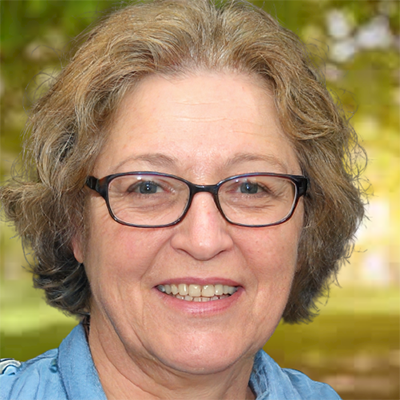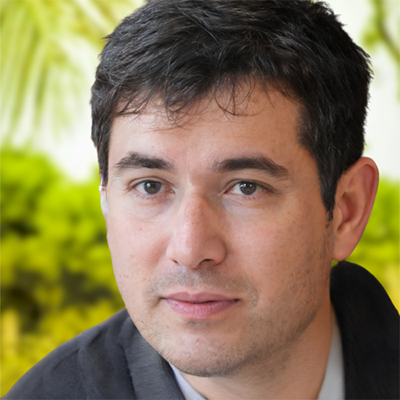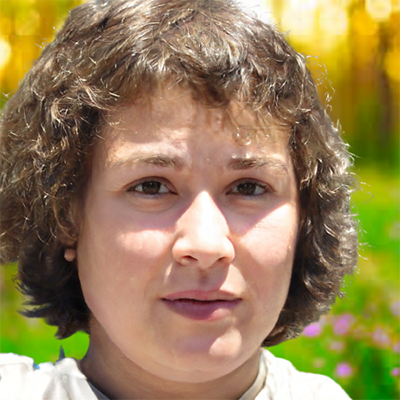

Doctorate in Hispanic Literature
For nearly three decades, I've delved into the heart of Spanish literature, sharing the passion and insights I've garnered with countless students. I remember being captivated by the works of García Lorca, Cervantes, and Isabel Allende, and it has been my lifelong mission to spread that enchantment. Working with IB students offers an unparalleled experience, allowing me to introduce them to the richness of Spanish literature while ensuring they grasp the nuances of the language itself.
Literature is a reflection of life. When teaching Spanish, I don't just focus on grammar and vocabulary; I bring the language to life using literary works as our guide. By studying the texts, students are introduced to a myriad of cultural, historical, and societal aspects intrinsic to Spanish-speaking countries. I also place emphasis on discussions and debates to ensure students engage critically with the texts, fostering deeper understanding and analytical skills.
Mr. Hughes has a unique way of teaching. By integrating literature into our lessons, Spanish became more than a subject; it became a story.
The world of Spanish literature is vast and beautiful. Thanks to Mr. Hughes, I've not only improved my language skills but also developed a love for Hispanic literature. Just wish we had some more vocabulary sessions.
There's no denying that his classes are engaging. The stories, the characters, the history – everything's so beautifully intertwined. Sometimes, though, I wish we had clearer grammar lessons.

Doctorate in Spanish Linguistics
I've been teaching Spanish for over 25 years, focusing on its rhythm, sounds, and the way its patterns make sense. My background in linguistics has given me the tools to break down the language so that it is easier to understand and more fun for kids to learn. The IB curriculum has helped me prepare my students for real-world situations and improve their ability to interact in a variety of Spanish-speaking settings.
Language is alive and changes with its people. My way gets students to talk, write, and think in Spanish, so they are more likely to learn. It's all about the situation. I often use examples from real life, news stories, and even pop culture to make lessons more interesting and relevant. Regular tests make sure that students are on the right track, but I make sure that these tests are different, like written tests, speaking presentations, and multimedia projects.
Mrs. Thompson's understanding of Spanish linguistics is outstanding. She makes each lesson interactive, ensuring we get ample practice. She's undoubtedly the reason I feel so confident in my Spanish speaking skills.
I truly admire how she brings in real-world scenarios into our lessons. It makes learning so much more interesting. I do wish, however, that we spent a bit more time on literature.
Learning Spanish with Mrs. Thompson is quite an experience! Her linguistics background offers a unique perspective on the language. I just sometimes struggle with the pace of the class.
.png)
Master's in Spanish Linguistics
For the past 16 years, I've been on a journey to inspire and guide young minds in the wide world of Spanish linguistics. When I started out, I was interested in the little things that make Spanish such a beautiful and varied language. From the differences between Latin American Spanish and European Spanish to the details of regional languages, my goal has been to give my students a full picture of the language. Working with IB students has been especially rewarding because they have to work hard to understand how deep and wide Spanish goes.
I believe in the philosophy that language is not just about words; it's about culture, history, and personal expression. We focus on language structures and vocabulary in my lessons, but we also learn about the cultural contexts where these words and phrases come from. I give my kids a well-rounded experience, whether we're talking about a Spanish movie, a song, or what's going on in Spanish-speaking countries right now. I don't just want them to be able to speak Spanish, but also to feel and live it.
Mrs. Martin's class is more than just a language class. It goes deep into the heart of the cultures of people who speak Spanish. From the music to the shows to the talks, it's been an amazing journey. I would want to learn more from Amelia, she’s a good teacher.
I've learned so much more than I expected. While I joined to better my Spanish, I've also grown to love the music, films, and history of Spanish-speaking nations. But, sometimes I wish we had more written exercises.
Amelia's dedication to teaching goes beyond the textbook. She truly wants us to understand and embrace the beauty of Spanish.

Master's in Spanish Literature
For 16 years, I've been teaching Spanish through stories. We've looked at old favorites and some new books too. These stories help my students like and understand the Spanish language, its way of life, and its past. Using stories in my lessons makes Spanish more real and fun. This way, students feel more connected to Spanish life and ways of speaking.
In my classroom, stories and literature serve as our main tools for understanding and mastering Spanish. As we meticulously read through prose and poetry, students not only encounter beautiful words but also pick up essential vocabulary, grammar, and context. I think it's crucial to expose students to a variety of genres and authors. This offers a well-rounded view of the vast and diverse Spanish-speaking world. Instead of simply reading, we engage in lively discussions, break down characters and their motivations, and even debate certain themes and decisions. By doing this, students become more than just readers; they actively immerse themselves in the universe of Spanish literature. Ultimately, my aim is for every student to leave with a comprehensive understanding of the language and a deep appreciation for the Spanish literary world's contributions.
Mr. Turner's love for Spanish literature is contagious. His lessons are like stepping into a world of stories, making the language learning process captivating.
I've grown to love Spanish literature thanks to Mr. Turner's unique teaching approach. It's more than just language learning; it's an exploration of culture and history.
His classes are like book club meetings, where we dive deep into narratives and characters. It's a refreshing approach, though I sometimes struggle with older texts.

Master's in Spanish Language and Culture
In the 15 years I've taught Spanish, I've always tried to bring real-world experiences to the classroom. Instead of just using textbooks, I've shared stories from my travels and daily life encounters where Spanish was essential. Whether it was a conversation at a local market in Madrid or navigating a bus route in Mexico City, these real-life situations have been a central part of my lessons, making learning more relatable for my students.
For me, Spanish is a living language, something we use every day. In my classes, we learn how to handle real-life situations using Spanish. We practice through role-plays, like being at a shop or asking for directions. I also use recordings of regular conversations to help students understand and speak naturally. My goal is for each student to feel comfortable using Spanish in their daily lives.
Taking Spanish with Mr. Foster has been an overwhelming experience. Every lesson is steeped in culture, filled with anecdotes from his travels, making the learning process feel like an adventure. I particularly enjoyed the sessions where he'd bring in native speakers to converse with us. It provided a genuine experience without leaving the classroom.
Leo's classes are a mix of traditional learning and cultural immersion. He shares so many personal travel stories, intertwining them with lessons, that it feels like you're journeying through Spain and Latin America. Sometimes, I wish we had more focused grammar sessions, but overall, his unique approach keeps me engaged and curious.
Mr. Foster's method of teaching keeps things interesting. His class feels less like a lecture and more like a travel documentary, filled with stories and experiences.

Master's in Spanish Literature
Having spent over a decade in the classrooms of Spanish higher education, I have developed an affection for the culture that informs the language. I love the literary works of Spanish-speaking countries, from Lorca's heartfelt poetry to Mario Vargas Llosa's biting wit. Over the years, I've tried to teach my students how much I love Spanish stories by combining the high standards of the IB curriculum with the rich world of Hispanic writings.
Method I employ as a language tutor is to emphasize the importance of going beyond the basics of grammar and vocabulary by learning about the history and literature of the people who speak that language. In my Spanish classes, we often read parts of books, plays, or poems and then talk about them. This helps students think and talk in Spanish. I also use movies, music, and art from Spanish-speaking countries because these things give a real look into the people's daily lives and feelings. Literature and culture are at the center of my lessons, but I also make sure that my students learn good reading, writing, speaking, and listening skills.
Mr. Phillips is more than a Spanish teacher; he's a guide into the rich world of Hispanic culture. His classes have given me a deep love for Spanish literature, something I hadn't anticipated.
Every class feels like a cultural journey! I've grown fond of Spanish poetry, thanks to Ethan. I just wish we had more interactive activities.
Ethan is a good teacher. While I enjoy our literary discussions, I sometimes find the grammar lessons a bit challenging.

Bachelor's in Spanish Literature
During the 12 years I've been a teacher, I've always had a lot of respect for the rich literature culture of Spain. My children and I have read a lot of Spanish literature, from the passionate works of Gabriel García Márquez to the moving poetry of Pablo Neruda. Literature has been a big part of my life, and it's not just books. I love the culture, history, and subtleties that each piece of writing captures. A lot of my students have fallen in love with the language over the years, just like I did. Stories make them love language.
It's not just about grammar and words for me; it's also about becoming absorbed in the stories and feelings that the language tells. In my classes, students do more than just learn Spanish. We get really into stories and look at what drives the characters, how they fit into history, and what their actions mean for society. The more students learn about a language's literature history, the better they think they will learn it. This will also help them understand the culture and people behind the words.
Ms. Walker's love for Spanish literature is evident in every class. Her enthusiasm is contagious. Through her teachings, I've not only improved my Spanish but also discovered a newfound love for reading.
Learning Spanish through its literature has been an enlightening experience. Sophia's classes are like stepping into a new world each day, where we explore stories, characters, and emotions. It's a journey I always look forward to.
Sophia has a unique teaching style. While I've gained a deeper connection with the Spanish language, I sometimes wish we'd spend more time on spoken conversational skills

Master's in Spanish Linguistics
For the past ten years, I've been deeply involved in teaching Spanish. I'm really interested in how the language works and how to teach it. Over time, I've seen many of my students go from being unsure to speaking Spanish with confidence. I'm familiar with the IB study plan and make sure my lessons fit it well, teaching both the details of the language and how to use it in real life.
To me, learning a language is like putting together a puzzle; you need to know each part. In my classes, students learn all about Spanish, from sounds to sentence structure. While we go over the details, I also think it's important to practice real conversations. That's why we do activities like role-playing, listening exercises, and back-and-forth talking. This way, students are ready for both school tests and real-life moments where they'll speak Spanish.
Ms. Carter's approach to teaching Spanish is both structured and engaging. Her focus on linguistics has really helped me understand the 'whys' behind the language.
Her lessons are a blend of rigorous exercises and fun dialogues. I've become much more confident in my speaking abilities, although sometimes the technical aspects can be a bit overwhelming.
I appreciate the balance between textbook knowledge and conversational practice in Grace's classes. It's been a well-rounded learning experience so far.
Master's in Spanish Linguistics
Over the last eight years, I've dedicated myself to dissecting and understanding the Spanish language. From the rolling "r"s to the complicated verb conjugations, I've explored every nook and cranny of this beautiful language. This involvement into linguistics isn't just an academic pursuit for me; it's a passion. I've had the privilege of teaching students from various backgrounds, and nothing excites me more than witnessing that "aha" moment when a concept clicks.
My teaching methodology is rooted in practicality. I believe that while theory is essential, the real understanding of a language comes from its practical use. In my classes, students get ample opportunities to speak, write, and think in Spanish. I incorporate real-life scenarios, current events, and pop culture references to make lessons contemporary and relatable. By connecting the language to everyday situations, I aim to make Spanish feel less like a subject and more like a tool for global communication.
Ms. Taylor's classes are a game changer. I used to struggle with Spanish, but her approach of merging real-life situations with language learning has made it so much more approachable. It's like learning Spanish while understanding its application in the real world.
Poppy's teaching style is refreshing. Using current events and everyday scenarios to teach Spanish is a brilliant approach. It feels like I'm not just learning a language but also understanding its context in today's world. I'd appreciate more focus on written exercises though.
I genuinely look forward to Ms. Taylor's classes. She's changed my perspective on learning Spanish, making it feel alive and relevant. The focus on practical situations is beneficial.

Master's in Spanish Literature
For seven years, I've been a Spanish teacher, working with diverse groups of students in various settings - from traditional classrooms to small group sessions. I've had the privilege of guiding beginners who couldn't say "hola" on their first day to express themselves. Along the way, I've faced challenges, adapted to different learning styles, and celebrated numerous milestones with my students. The journey has been both rewarding and enlightening. I have been pushed to refine my methods and grow as an educator constantly. Through it all, my love for teaching and passion for the Spanish language has only deepened.
Spanish is like a big, ongoing story. In my lessons, I use stories and everyday chats to show how words can have deep feelings and meanings. I teach in a way that is different from others by focusing on books and stories first. But this way, my students learn more words and get a better feel for the language and its culture.
Oscar's literature-based approach to Spanish has given me a newfound love for the language. His passion for books and stories is evident in every lesson, and it's hard not to be captivated. Through novels and poetry, I've learned more about Spanish than I ever did with traditional methods.
His lessons are a breath of fresh air. Delving into literature while learning a language is an experience I didn't know I needed. However, sometimes I wish we could dedicate a bit more time to spoken Spanish. The focus on literature is enriching, but I'd love a balanced approach.
Studying under Mr. Ward feels like attending a literature class and a language course simultaneously. It's enlightening to learn Spanish through its rich literary history. His passion is evident, and it's hard not to get swept up in it.